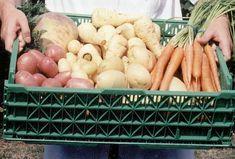
The economic downturn is threatening the once burgeoning growth rate of the organics market in the UK.
The Soil Association is forecasting a mere five per cent increase in sales in 2008, compared with 30 per cent in recent years, although this growth rate still outstrips the conventional, from a far lower base.
One sector analyst said that organic fruit and vegetable production is falling victim to the increased popularity of grow-your-own vegetables with allotment tending and gardening both expanding. A traditional summer dip for box-scheme deliveries, as customers travel for their holidays between July and September, has according to one analyst “stretched to from June to November as the success of home-grown soft fruit, top fruit, and salad and vegetable production takes hold”.
But Peter Cornish of Pollybell Organic Farm warns against reading too much into the situation. He said: “Any changes in the market could be masked by the fact that we are in the holiday period and there is always a downturn in orders. I don’t think we will get a real picture of the situation until the kids go back to school in September. But I don’t think we should start to panic yet. Hardened organic buyers are not going to switch overnight to conventional products as a knee-jerk reaction to the credit crunch.”
Cornish also suggested that with people cutting back on eating out to save money, they may still want to eat well at home and see “trading up” to organics as a saving compared to dining outside the home. “I think people growing their own can also have a positive effect,” said Cornish. “If you are not careful you can have periods of glut and nothing when producing from your own garden. People can get fed up with eating their own lettuce every day, for example, and will want to use us. That might also make them more discerning in their tastes.”
Another source from the sector warns that any downturn in sales might also have more to do with inadequacy at supermarket level. “I am concerned that sometimes, despite being at the peak of a season for a particular product, that product does not feature at all in the organic shelves at the supermarket,” he said.
“If a product is not stocked then a customer will either buy that product grown conventionally or not at all, but they cannot buy it if it is just not there. I don’t know whether this is a shelf space issue or an ordering system problem, but it is a matter for concern, as it should not be happening.”



